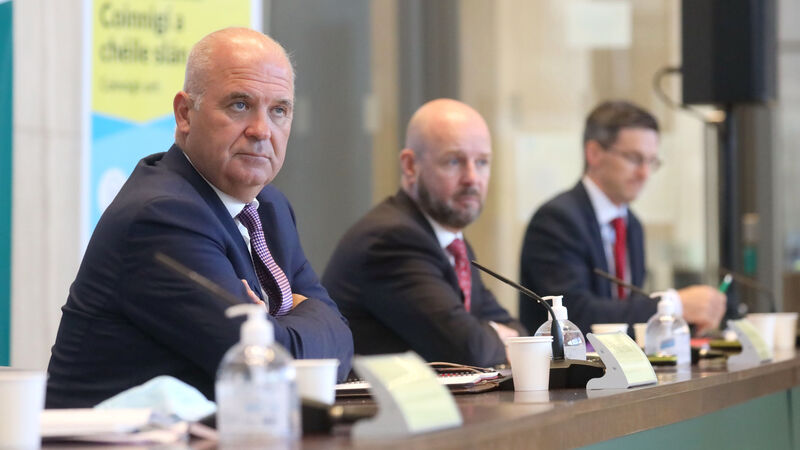Terry Prone: Nphet members will have to learn to deal with the fickleness of fame

Faces of the pandemic: Dr Tony Holohan, Professor Philip Nolan, and Dr Ronan Glynn. Picture: Paddy Cummins /Collins Dublin
Try from €1.50 / week
SUBSCRIBE
Faces of the pandemic: Dr Tony Holohan, Professor Philip Nolan, and Dr Ronan Glynn. Picture: Paddy Cummins /Collins Dublin
THE Government is reported to be winding down the National Public Health Emergency Team (Nphet), although the precise nature of that wind down is, as yet, unclear.
What is clear, however, is that some members of Government would love if some of the more famous and vocal members of Nphet would just go away, stop being famous, stop appearing on media, stop sending letters influencing, if not dictating, Government policy — essentially, just go gently into the dark night of silence. Exercising their right to be forgotten would be good, too.
Already a subscriber? Sign in
You have reached your article limit.
Annual €130 €80
Best value
Monthly €12€6 / month
Introductory offers for new customers. Annual billed once for first year. Renews at €130. Monthly initial discount (first 3 months) billed monthly, then €12 a month. Ts&Cs apply.
CONNECT WITH US TODAY
Be the first to know the latest news and updates
Newsletter
Sign up to the best reads of the week from irishexaminer.com selected just for you.

Select your favourite newsletters and get the best of Irish Examiner delivered to your inbox
Sunday, February 8, 2026 - 7:00 PM
Sunday, February 8, 2026 - 9:00 PM
Sunday, February 8, 2026 - 8:00 PM
© Examiner Echo Group Limited